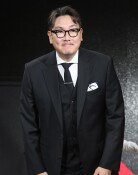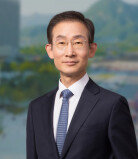[Opinion] The Nations Judicial Independence Is At Stake
[Opinion] The Nations Judicial Independence Is At Stake
Posted October. 12, 2005 07:04,
With Constitutional revitalizing reform measures taking effect, the Korean president effectively earned the right to control the branches of government, leaving the judicature in a subordinate role.
From the reform era to the Fifth Republic, some judges handed down rulings in resistance to political pressure. But most judges followed the wishes of authoritarian governments. Jeon Soo-an, a judge of the high court, wrote for Monitoring Justice, a civic group publication: Shameful rulings raised the eyebrows of many judges, infuriated themselves as well as the public, and forced them to endure the glares from their families at home.
Many judges began to reflect upon themselves after Chief Justice Lee Yong-hoon announced that he would collect rulings made under authoritarian governments. When he retired after 35 years of judiciary service, former Supreme Court Justice Yoo Ji-dam confessed, I kept silent during those days when I should have risen against the government and argued for judicial independence.
There have only been a few who have repented publicly like Yoo out of many who served as judges at that time. But even Yoo is thought to have confessed, influenced by the mood in and around the judicature.
Senior Judge Cheon claimed, The Chief Justice will apologize on behalf of the judicature if it is found that some judges made wrong decisions. Some pointed out, however, that it would be wrong if even a few fair-minded judges or academics failed to acknowledge shameful rulings made by the judicature 18 years after the end of the dictatorship era.
Although Cheons argument is consistent with the current trend, it is necessary to judge whether it is a correct one. This is because Cheon, the only female senior judge at the High Court, is considered a candidate for a Supreme Court Justice slot or for a future opening on the Constitutional Court.
The Roh Moo-hyun government has made coming to terms with past wrongdoings a big issue, as if all wrongdoings come from the past. True judicial independence means that it does not let itself be affected by such trends. If it becomes sensitive to political climates, that may lead to more wrongdoings. Those focusing on resolving past issues may invite misunderstanding that they are too conscious of the Chief Justice and the president, who has the right to appoint judges.
Hwang Ho-taek, Editorial Writer, hthwang@donga.com






![병원비 50만 원, 조리원비 5000만 원…‘조리원 호캉스’ 시대 [이미지의 포에버 육아]](https://dimg.donga.com/c/138/175/90/1/wps/NEWS/IMAGE/2025/12/07/132913944.1.jpg)
